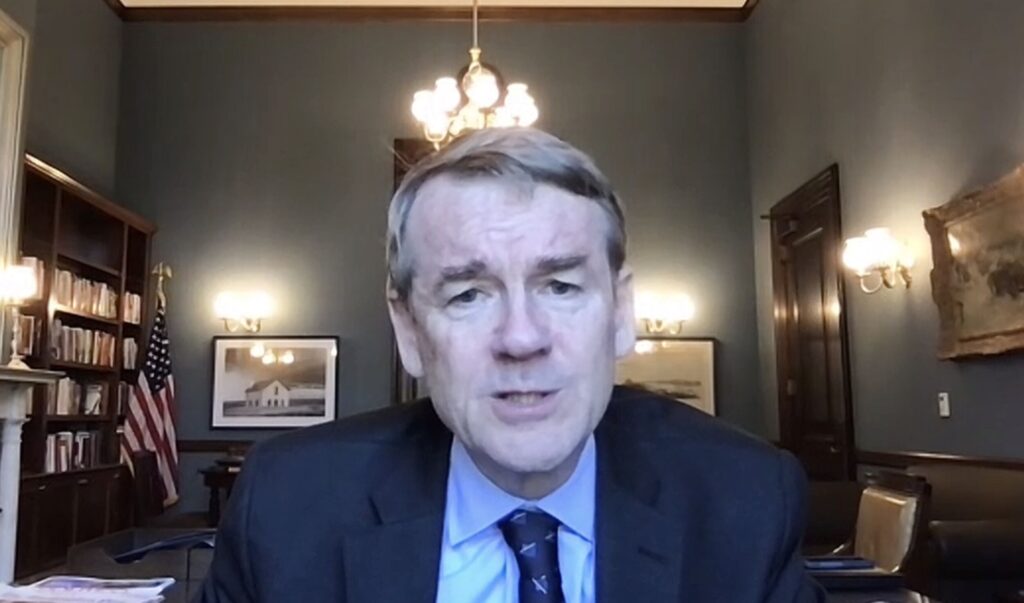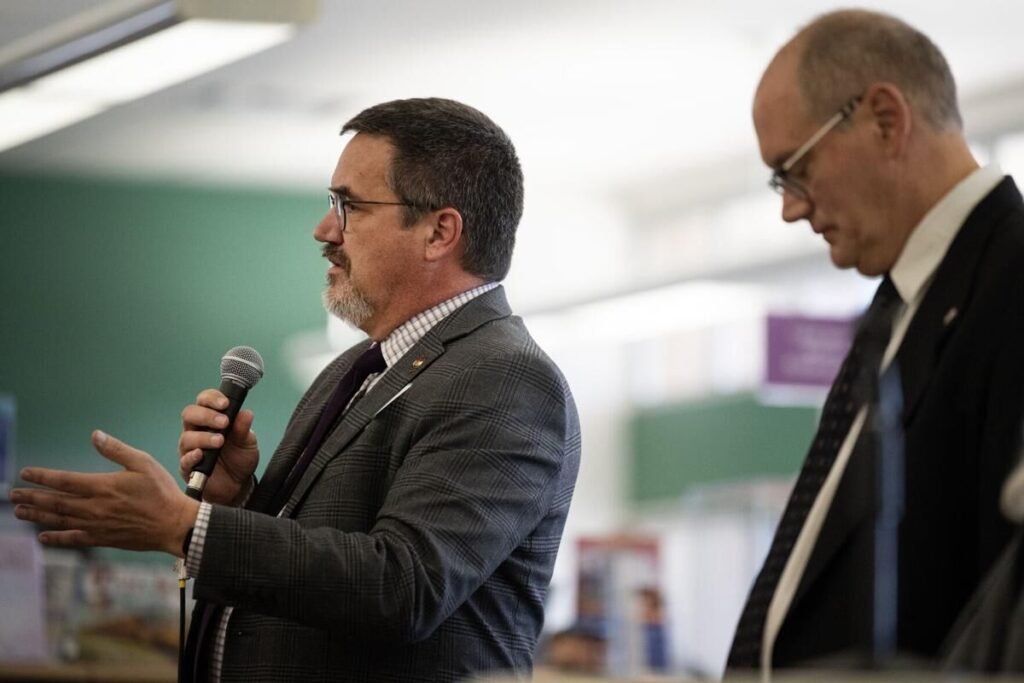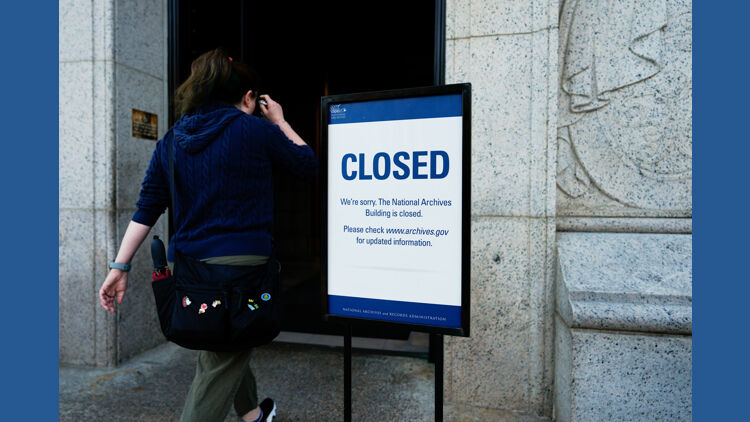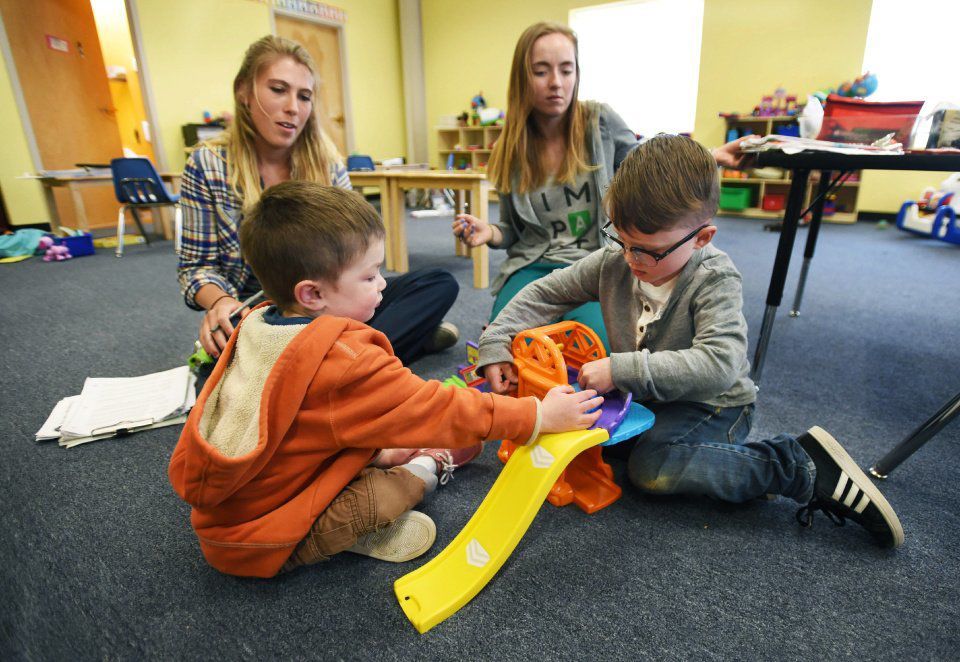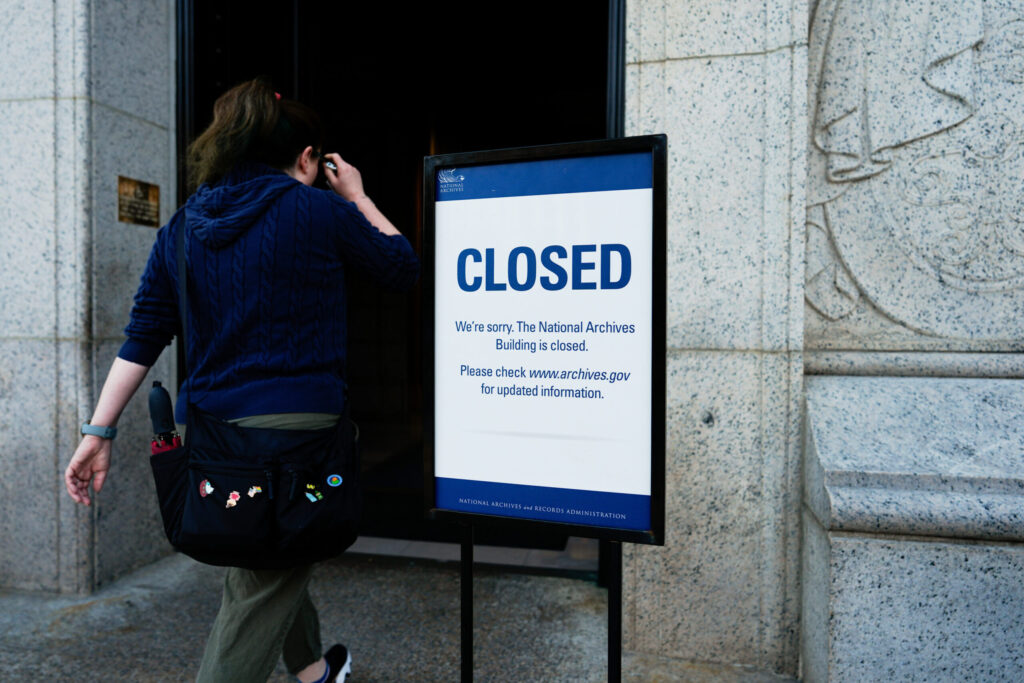Reactions mixed to task force recs

The task force established by Gov. John Hickenlooper last summer to resolve conflicts between the oil and gas industry, local governments and environmentalists over drilling in Colorado voted Tuesday to deliver a handful of proposals to the governor but fell short of producing the sweeping compromise some had anticipated.
“Is it a resounding success? No. Is it a good path forward? I think it is,” former Secretary of State Bernie Buescher, a member of the Governor’s Task Force on State and Local Regulation of Oil and Gas Operations, told The Colorado Statesman after the panel had concluded its business.
Following nearly six months of hearings and discussions, the 21-member task force sent ahead nine policy recommendations with the required two-thirds’ support at the conclusion of an all-day meeting at the Colorado Convention Center.
The panel approved proposals to create a mediation process to deal with impasses over drilling operations, as well as suggestions to increase staffing at the Colorado Oil and Gas Commission and bolster inspections to monitor emissions at drilling sites. Nearly 30 more proposals got insufficient support to be included among the recommended changes to state policy but will be included in a minority report.
Meanwhile, a newly formed group called Coloradans Against Fracking showed up at the meeting and announced that it planned to take a statewide ban on hydraulic fracturing, or fracking, to next year’s ballot.
Hickenlooper created the task force last summer as part of a last-minute deal that included the withdrawal of four competing initiatives from the fall ballot. Two of the ballot measures, backed by U.S. Rep. Jared Polis, a Boulder Democrat, would have made it easier to restrict drilling and two could have made it harder or more expensive.
Thanking the volunteer task force members for their work, Hickenlooper praised participants in a statement for their “determination and willingness to really hear each other” and called their recommendations “significant in both breadth and the level of consensus they achieved.”
“They made undeniable progress for all of Colorado today and we are extremely grateful for their work,” Hickenlooper said, adding, “We have not rested in addressing the tough issues that come with balancing quality of life with an important and thriving industry.”
But some task force members said that it hadn’t achieved what it had set out to accomplish.
“I have to say right now I’m disappointed that we didn’t pass a couple of really key recommendations on increasing local government authority and dealing with multi-well site facilities,” said La Plata County Commissioner Gwen Lachelt, a co-chair of the task force. “I’m hoping that folks will continue to push these issues with their legislators, and, hopefully, we’ll get there.”
Encana Corp. executive Lem Smith, who stood in for Encana’s Peter Dea at Tuesday’s meeting, disagreed, calling the results a success.
“The governor’s going to get some meaningful recommendations that go well beyond the status quo,” Smith said. “Is that going to satisfy everybody? I hope that it will, but for those that may only be satisfied by a right to veto or a right to restrict significantly, if not ban oil and gas, it will probably come up short in their eyes. But, I think, to most observers, this is a good report, and a meaningful set of recommendations is on its way to the governor.”
Jon Goldin-Dubois, president of Western Resource Advocates, however, acknowledged that the task force had taken “some small steps around the margins” that might improve things in some locations, but lamented that the key disputes remain untouched.
“We came pretty far from getting to the central issue, which is local government authority and their ability to protect their citizens when it comes to health, safety, welfare and the environment,” he told The Statesman. “On that count, we failed.”
Policies addressed by the task force, Goldin-Dubois contended, won’t be enough to resolve the conflicts that led to its creation.
“It’s going to continue to be contentious, it’s going to continue to breed conflict, and it’s not going to get us where I hoped we’d be out of this,” he said. “What’s happened in terms of the industrial development on the Front Range, in particular, is that it’s begun to turn soccer moms and retirees into activists, and I don’t think that’s where we want to be. I think we’ve got to do a lot more to solve this issue.”
But an industry advocate argued that the measures approved by the task force — most of the recommendations can be adopted by Hickenlooper without needing legislative approval — mark significant progress.
“Today the task force recommended changes that will enhance the role of local governments,” said Colorado Oil and Gas Association president Tisha Schuller in a statement. “The recommendation will allow conflicts to be worked out earlier while also working to ensure local government needs are addressed in the state permitting process. That’s a positive move forward.” She added, “We are committed to continuing to work on forging compromises that move the conversation about responsible energy development forward.”
House Speaker Dickey Lee Hullinghorst, D-Boulder, said on Wednesday that the issue was far from resolved.
“While the recommendations the task force made will help, they do not fully address the core issue of local control,” she said in a statement. “Without resolution to local control conflicts, citizens and local governments will continue to struggle with issues related to oil and gas development in their communities. This is a tough, complicated policy conversation, and there is more work to do by all parties involved to fully resolve the matter.”
She added that talk about ballot initiatives was “premature and not an avenue I am interested in pursuing.” Instead, she said, she looks forward to “continuing conversations with all parties involved, including mineral rights and surface rights owners, industry, environmental organizations, and local governments and communities on how we can best address the tensions caused by industrial activities in local communities.”
Polis sounded less impressed with the task force’s results.
“While a strong majority of the Commission rose to the occasion and supported common sense measures to address these issues, unfortunately the oil and gas industry proved they weren’t interested in a compromise or solving the problem,” he said in a statement.
“Coloradans deserve better,” Polis continued, “and I ask Gov. Hickenlooper to finally hear their pleas. We can and we must make the real changes needed to solve the problem of industrial drilling facilities being placed mere feet away from homes and schools. It’s unacceptable for fellow Coloradans to be treated as collateral damage when we have the technology and planning tools to protect families and still develop our domestic resources.”
Buescher maintained that some of the recommended proposals would prove to be “a good set of tools” to resolve conflicts over drilling.
“The proposals that got support, in a number of cases unanimous support — industry, the environmental community, civic leaders — were largely about process, largely about creating a better path for local communities to work with the industry, to recognize the concerns about surface impacts,” Buescher said. “So, I think, we have created a path to eliminate a lot of the conflict. The task force recognized that hard, prescriptive rules aren’t the best solution. If we can think about process and ways communities can work with industry, together, and given the right tools, in many situations — not in all, but in many situations — they can reduce these situations that we’ve seen.”
Task force member Rebecca Love Kourlis, a former justice of the Colorado Supreme Court, agreed that the recommendations could solve some problems.
“In the end analysis, we came up with some things that will be helpful,” she told The Statesman. “Did it go as far as perhaps we could have gone? No, but I think it was worth it. I think everybody sitting around this table came to it in complete good faith. There’s not much more you can ask. You put 21 people together, shake ’em up in a jar, and see what comes out the other side. I think it was worth it and that the proposals that emerged will help people.”
—Ernest@coloradostatesman.com
See full photo coverage in the Feb. 27, 2015 print edition.
Colorado Politics Must-Reads:






